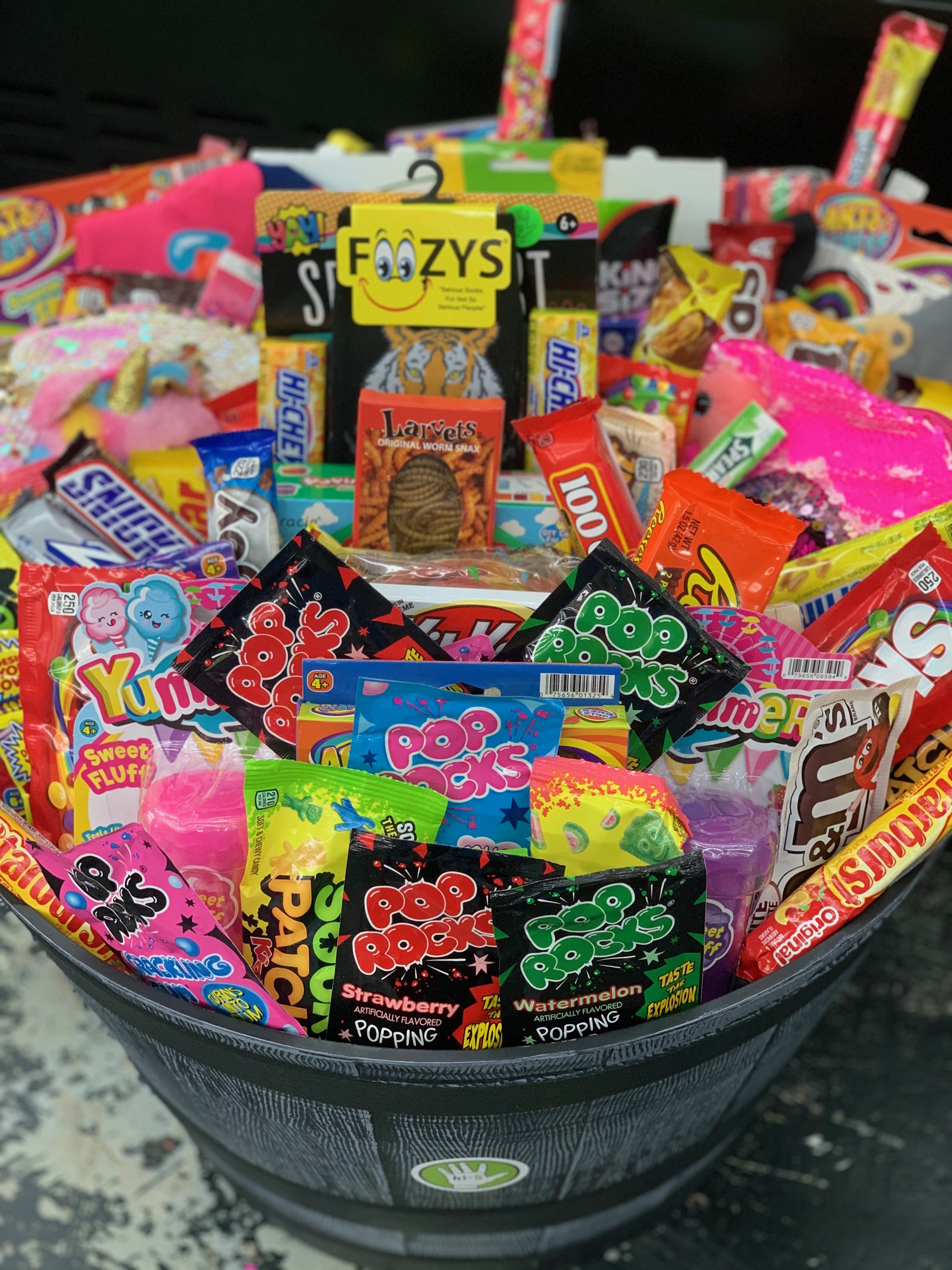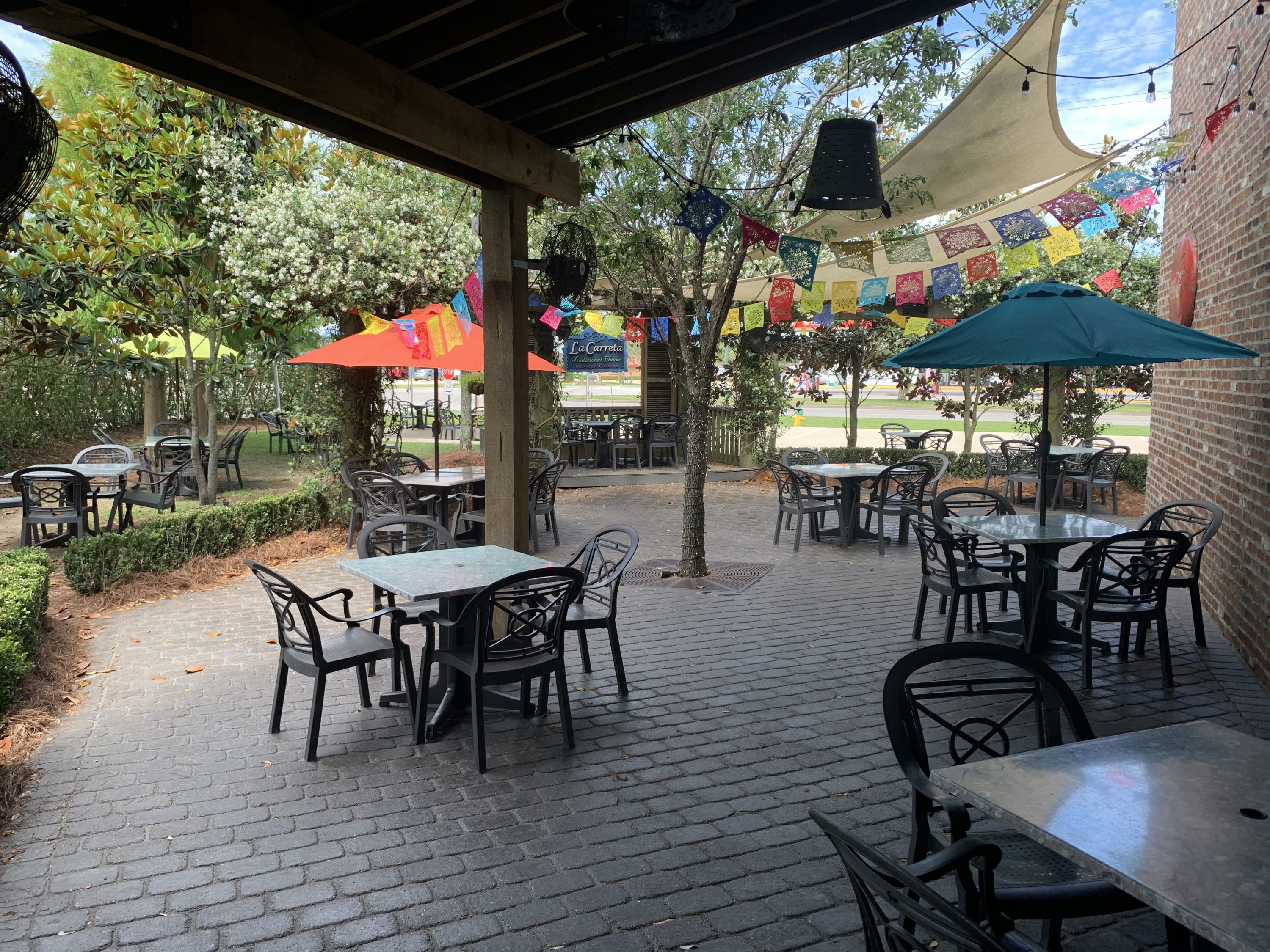
New Technology Creates a Safer Zone in Hot Work Situations
May 31, 2020
Homeschool Happenings
May 31, 2020As the novel coronavirus spread rapidly across Louisiana, Governor John Bel Edwards issued a stay-at-home order and placed restrictions on certain types of businesses while others considered non-essential were forced to close their stores.
To stay afloat, local owners had to adapt to the “new normal” by rethinking and reinventing their business during the pandemic — such as Erica Cheramie and James Cabirac, owners of Hi-5 in Houma.
“We closed a little earlier than most businesses just because we’re a children’s store and we really didn’t want to take any risks,” Cheramie said. “You got to think about your employees. You want to do what’s best for them and let them still have hours, but you don’t want to subject them to any illnesses.”
With locations at 1234 St Charles St. and in the Southland Mall, Hi-5 offers party supplies, seasonal décor, novelty gifts, toys, candy and more at $5 or less for each item.
Although the local shop attracted many families that marveled at the various items for sale, when it physically closed, it didn’t stop the demand. “The day after we closed, we came in just to kind of get our thoughts together,” Cheramie remembered. “Just with the amount of phone calls that were coming through, we just started taking curbside and delivery orders, and then word got around.”
She continued: “So we started promoting it, and we started doing care packages — or what I call sanity packages — which is just like some toys, snacks and things to keep the kids occupied that we tailored it to each child.”
Even with shifting operations completely to the St. Charles location, which caused some business to go down, Cheramie said, the store still remained busy. “Our customers are really loyal to us; the phones are always ringing,” she continued.
Hi-5 has done thousands of Easter, birthday and graduation baskets during the pandemic, while providing pickup and delivery options. “If they can’t come to Hi-5, we can bring Hi-5 to them,” Cheramie said.
At press time in late May, both locations are still closed to the public, but they have plans to possibly open up soon on a limited basis, Cheramie said.
“We are just really appreciative of our customer base. If it wasn’t for them going out of their way and making orders, we wouldn’t have been able to stay open past this pandemic,” she added. “We’re just blessed to have this little community that we have right here off of St. Charles and we’ve even expanded our base up like all throughout Houma, Bourg and Thibodaux. So we just feel really, really thankful for it.”
Steph Domingue, owner of Shoe Shi Boutique in Thibodaux, said since she opened her store 13 years ago, she never saw the possibility of it closing one day.
“That was never in my mindset,” she said. “I told myself 1,000 percent: our doors will not close…I always had a very strong will to be a small business owner and do everything that it took, which is a lot of work to be perfectly honest…to do everything that I had to do in order to make it work.”
Even though non-essential businesses in Lafourche were forced to close their doors, Domingue says the bills did not stop coming: “We still had to pay rent; we still had previous bills from orders that we had placed before that, that were still coming in. So it wasn’t just like the bills just ceased to exist.”
In addition to the bills, Domingue had to deal with a significant amount of inventory that the fashion boutique had to sell before it became what she calls “stale merchandise.” She continued: “So I needed to figure out a way to move it quickly and to move it efficiently.”
To move product quickly and efficiently, Domingue utilized the store’s business social media pages, which she had been building up long before the pandemic. She showcased Shoe Shi’s new, trendy outfits and accessories through the sites, allowing for customers to still see what’s in store and place orders.
Not just wanting to use the online platforms to sell merchandise, Domingue made sure to engage with her customers daily on the Shoe Shi VIP Facebook page.
“It was really the VIP page that brought us through the quarantine,” she said. “I went to the store every single day. I went live several times a week, just talking to my customers like, ‘How are you? What are you doing? I would just talk to them about normal things because I think everybody needed that sense of normalcy.”
Domingue said her business actually grew during the stay-at-home order. “It was probably the hardest I’ve worked in the 13 years that we’ve had our business. It didn’t come easy,” she shared. “I had to work my tail off. I worked seven days a week, the entire day until like 6:00 p.m, almost every day. And it was exhausting.”
The boutique located at 416 N Canal Blvd. is now open to limited hours, Domingue said, but they are planning to open up to regular hours on June 1.
“Our customers are everything; without them our doors would absolutely be closed,” she added. “So even though we had to put in all the hard work, our customers showing up and continuing to be there and continuing to be loyal to us is absolutely everything. If you don’t have loyal customers at the end of the day, you don’t have a very good business. Them continuing to show up and just be there is why we can show up and be there.”
For Louisiana restaurants, their “new normal” after the pandemic hit was going strictly to takeout and delivery.
Glynn Voisin Jr., general manager of Houma’s La Carreta (1327 St. Charles St.), said that the transition wasn’t necessarily difficult, but it was an adjustment.
“I think the hard part was getting our staff in line for strictly to-go and a different way of operating a restaurant. They’re hired to serve tables, and now they’re strictly doing to-go and having to wear a mask and all these procedures,” he shared. “But as a team we got through it.”
Because the Mexican cuisine restaurant couldn’t serve patrons in the dining room or patio area, Voisin said business did go down, but they stayed fairly busy producing pickup orders.
“I mean there were days that I was just shocked; I kind of felt overwhelmed that we’re doing this, with just a small group of people,” he remembered. “And then eventually it just got better and better, and the better we got at it, the better the system we have in place became.”
La Carreta staff decided they wanted to still find a way to bring the community together during tough times the pandemic brought, while also maintaining social distancing. Thus, the idea formed to do drive-in movies.
“It was kind of discouraging: this is what our life is. I’ve dedicated my entire life to this restaurant, and not being able to serve the public was kind of hard,” Voisin shared. “So we needed to figure out how to maintain business and bring people together in the community with them also being separate. And the drive-in movie just kind of came as a natural idea for me.”
Voisin said he posted the idea on Facebook, and within minutes, he got a projector, screen and speaker donated to the restaurant for temporary usage. “People wanted us to succeed and La Carreta and other restaurants to do well…because we’re all in the same situation together.”
The drive-in movie nights were not only a hit with customers, Voisin said, but also a morale booster for the local community and the staff. “It just turned into this thing that was getting the community so pumped,” he said. “I think the movie nights gave us the drive to continue on and not give up.”
“It seemed worth it to see the reaction on people’s faces, just the joy in their hearts to come out and stay in their car, but still be together as a family doing something that’s real cool,” he continued. “It was really nice. It’s something that we want to adapt in the future and continue to do.”
Opening to 25 percent capacity and other restrictions was an adjustment as well, Voisin explained, as the outside patio was extended to the parking lot and staff had to work with the Fire Marshal to measure out tables. The outside area is first come, first served and the inside dining area, which is now down to 12 tables, can only be acquired through reservation on the OpenTable app.
Staff members are also implementing other safety precautions: taking temperatures before and after every shift, wearing masks, frequently washing hands and sanitizing areas, etc. “There’s different methods on cleanliness that we’re trying to adapt to,” Voisin said. “And nothing for the bad: I mean it’s nice to be cleaner than ever.”
The biggest stress relief is that their patrons have been understanding and respectful of the rules, Voisin said. “I think mostly because they also want to be out of the house too and want to do whatever they can to end this as quickly as possible,” he continued. “So the more people that follow the rules, the better and the quicker this will end.”
With many employees not being able to work for months and having to turn away customers when the building reached capacity, Voisin said, the virus took a toll on the resturant and the community — mentality and physically.
“Just seeing the light at the end of this tunnel and the customer’s feedback are just what drives us,” he added. “If they weren’t here, we wouldn’t have any reason to be here. And we would have nothing to fight for.” •













